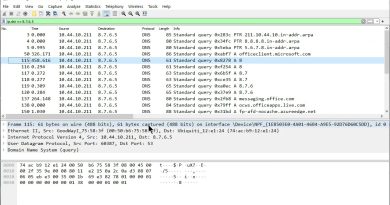Linux isn't ready for professional work?
Head to https://squarespace.com/thelinuxexperiment to save 10% off your first purchase of a website or domain using code thelinuxexperiment
Grab a brand new laptop or desktop running Linux: https://www.tuxedocomputers.com/en#
👏 SUPPORT THE CHANNEL:
Get access to a weekly podcast, vote on the next topics I cover, and get your name in the credits:
YouTube: https://www.youtube.com/@thelinuxexp/join
Patreon: https://www.patreon.com/thelinuxexperiment
Liberapay: https://liberapay.com/TheLinuxExperiment/
Or, you can donate whatever you want: https://paypal.me/thelinuxexp
👕 GET TLE MERCH
Support the channel AND get cool new gear: https://the-linux-experiment.creator-spring.com/
🎙️ LINUX AND OPEN SOURCE NEWS PODCAST:
Listen to the latest Linux and open source news, with more in depth coverage, and ad-free! https://podcast.thelinuxexp.com
🏆 FOLLOW ME ELSEWHERE:
Website: https://thelinuxexp.com
Mastodon: https://mastodon.social/web/@thelinuxEXP
Pixelfed: https://pixelfed.social/TLENick
PeerTube: https://tilvids.com/c/thelinuxexperiment_channel/videos
Discord: https://discord.gg/mdnHftjkja
#Linux #office #work
00:00 Intro
00:27 Sponsor: 10% off your first website with SquareSpace
01:25 Linux is everywhere
02:47 Developers
04:00 Office Work
06:57 Media Creation
08:15 AI
08:58 The tip of the iceberg
11:19 Not for everyone
13:40 Sponsor: Get a PC made to run Linux
14:41 Support the channel
The first thing is that Linux is everywhere and already used by professionals all around the world.
I could take the example of Android, which is the most popular smartphone OS in the world, and using a Linux kernel. I could turn to the absolute domination of Linux on the server space.
I could also point to every NAS out there, generally using a Linux kernel, if we look at IoT and small appliances, Linux also dominates the space. But it’s not what people intend when talking about an OS. Generally, they mean that the Linux DESKTOP isn’t ready for professionals.
The first obvious counter argument is developers. Linux is used by 47% of professional developers. That’s higher than the market share of macOS among developers.
If we take the vast majority of people who will interact with a computer, what do they truly need in their day to day job? A web browser, an email client, an office suite, and a usable interface.
On that specific front, Linux has all that’s needed. Whether it’s KDE for an interface closer to Windows, or GNOME for the simplest thing to use possible, the Linux desktop IS one of the most usable out there.
In terms of web browsers, there’s no question, we have them all. For email clients, we do lack Outlook, but the web interface might be enough for most people’s needs, and if not, we have awesome clients that can replace Outlook: Evolution and Thunderbird.
LibreOffice might be a great option for a lot of people, but it does have some problems, let’s face it. But LibreOffice isn’t our only choice. For perfect compatibility, we have access to SoftMaker Office, now called FreeOffice, or to WPS Office.
Now, for media creation, Linux lacks all the Adobe programs. But that doesn’t mean we don’t have tools either. Davinci Resolve is a tool used by professionals and hollywood studios to edit videos, edit audio, and create virtual effects. It basically does what Audition, After Effects and Premiere do, in one single package. it’s available on Linux.
We have Blender for VFX. Houdini, a tool used by VFX artists for simulations? It’s on Linux.
Maya? It’s on Linux. Studio One, a professional DIgital Audio Workstation, just released a beta for Linux. We have inkscape, Ardour, Krita – one of the most popular digital drawing apps- OBS, PDF Studio for editing PDF documents, Bitwig, and a lot more.
Whether you like AI or not, it’s happening. And AI is a professional domain in which Linux is the standard.
And that’s the tip of the iceberg. Cybersecurity professionals mostly use Linux. Almost 100% of supercomputers used for any specific domain run Linux. The whole space industry runs on Linux. A bunch of military sytems run Linux.
The market share of Linux on the desktop is low, there’s no denying that: it’s listed at barely 3%, far below macOS or Windows. But this doesn’t include another system: Chrome OS. And chrome OS has 3.9% market share on the desktop. Combined with non Chrome OS Linux ssytems, taht’s almost 7%. it’s still lower than proprietary OSes, but that’s a LOT of computers running a Linux system.
Now, that doesn’t mean Linux is ready for every professional out there. If you absolutely need certain software that’s not available, then Linux won’t work for you. But I’d argue that it’s not necessarily a Linux problem: it has the tools needed to do the same job in most cases. It’s just not the tools you’re allowed to use, or want to use.
by The Linux Experiment
linux web server




Head to https://squarespace.com/thelinuxexperiment to save 10% off your first purchase of a website or domain using code thelinuxexperiment
Without any support from Adobe, Linux is not ready for professional designers. Gimp is a very bad piece of software, probably the worst open-source project ever.
At the moment, my 2 reasons for using Windows are that my job only uses Windows (most likely in a vm off of Linux) and Vudu. I've got too many movies through Vudu to disregard and, unless someone's found a fix, I have yet to be able to watch movies from it in Linux.
Those people that say Linux is not for professional work don't actually know what they are talking. I'm an electrical engineer since 2001 and I've used Linux since that time!
Linux is conceived for servers like you said in the video so, professionalism has never been a issue. The true problem is the actual mainstream desktop panorama and expectations that masses tend to see when looking into the "adjusted" Linux desktop version.
In last few months I have switched all my PCs at home to Linux, and apart from nVidia issues – it is perfect. Last machine I did is my work desktop, for this one I have switched to Radeon, and wow, not sure if it is one gen of gpu improvement that I went for, but everything feels so much snappier, and on top of it – compatibility with games is awesome. Cities skylines 2, as most drastic example – from zero to hero.
i love the channel. i do entry-level, professional editing. i'd love to see you compare OpenSuse, Fedora and Neon for Davinci Resolve (or similar programs) for professional use.
So Linux is "professional" however you define it. My company uses RHEL for chip design. We use all kinds of chip CAD tools as well as custom scripts that run from the command line. We use KDE desktop (old version because of RHEL 7) but the CAD tools work better on Linux than Windows at least for chip design. We use to use HP and Sun systems but now have 99% Linux systems.
I use Linux on all of my office computers. I've got one laptop running Windows 10 if I need it.
I am a web developer for 3 years.
All major companies insisted on using Windows.
Moreover most games runs better on windows.
So playing games when stressed is easier on windows.
Although I am aware of the privacy situation.
Linux has a huge room for improvement in terms of compatibility.
Can confirm, I'm a programmer and I use Linux.
I also use Linux when I have to deal with admin/office/sharepoint stuff because you can just use Office 365 from the browser.
I would not recommend wps office, last time I checked it was outdated (in comparision to windows version). For exmple in linux translations are missing. Maybe under some sort of wine it would work good
working as a dev and integrator for industrials, i'll use and install / help to moveto linux and bsd often lately , for the workstation , industrial graphism as well as production machine
If anything, Linux is for professionals more than for regular users, especially when it comes to networking and IT professionals.
Desktop is quite usable, it has some problems for sure but not ready? Not even close, considering how often windows gives the blue screen…
Generally, if people don't keep themselves updated on the field, they think it hasn't moved an inch since last time they looked at it, for maybe 10 years ago. That's a huge bias most people seem to have.
Its the other way. professionals are not ready for linux.
hi
do you have a video about how a windows user can migrate to linux with peace of mind regarding SECURITY?
leaving antivirus and preconfigured firewalls behind is the hardest part for lots of windows users
something like how you may be able to make linux more secure than win with hardening methods without talking about "there r not as many malwares on linux" or "u should be careful what site u visit and where u click on!"
As an almost 40 years as a Microsoft user, I have to say that nowadays I use Linux as my main OS and I use Windows for very specific tasks (Debian 12 Kde Plasma, in my case).
Asking password for almost everything is great deal breaker.
Linux is really good kernel. Issue starts with GNU. It is not for modern age. Distros are also an issue. You can't get work done. There are no standard. Everytime I try to use linux based distro, I regret it right after instal. It is endless loop. Use a proper OS…